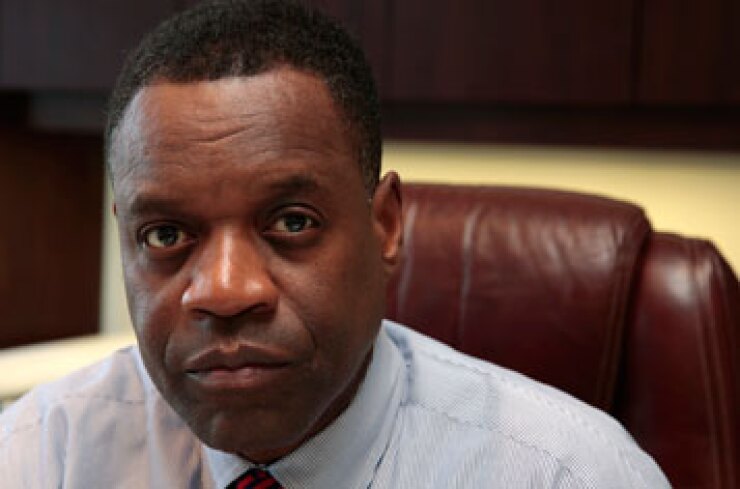
CHICAGO -- Detroit’s bankruptcy eligibility trial will continue into next week after five days of testimony in which Michigan Gov. Rick Snyder and Detroit emergency manager Kevyn Orr sparred with creditor attorneys but revealed little fresh information.
The city and Judge Steven Rhodes had hoped to wrap up the trial by Tuesday. But Orr, the city’s final witness, was still being cross-examined by the end of court proceedings Tuesday, and will return to the stand next Monday.
Creditors’ attorneys will then begin to call their witnesses, who will include outgoing Michigan treasurer Andy Dillon and top Snyder aide Richard Baird, who hired Orr.
Detroit needs to meet several thresholds, including proving insolvency and sincere negotiating efforts, to legally enter into bankruptcy. Creditor attorneys have largely attacked Detroit for lack of good-faith negotiations, arguing that state and city officials were determined to file for bankruptcy in the belief that federal law is the only way to circumvent the Michigan constitutional protection of pensions.
Bond insurers and bondholders have not challenged the city’s eligibility to enter into Chapter 9, and so are not part of the trial.
Over the course of three days, Orr revealed little that he had not already talked about in a deposition given in early September. Creditor attorneys questioned Orr repeatedly about his plans for the city’s pensions as well as the timeline leading up to the July 18 filing.
In testimony Tuesday, Orr said he could not recall if he’d ever asked Snyder for state help in covering the city’s unfunded pension liability, which the state and city estimate at $3.5 billion.
“Have you ever spoken to the governor about having the state assume some or all of the city’s pension liabilities?” asked attorney Peter DeChiara, who represents the United Auto Workers union.
“I don’t recall,” Orr said.
“You do not remember asking the governor to write a check for $3.5 billion?” Rhodes, the judge, asked, in a rare interruption.
“This is the problem with a yes or no,” Orr said, referring to the judge’s request that witnesses stick to yes or no responses. “The number may not have been $3.5 billion, but the question might have been for some assistance. I don’t remember it in that context.”
Snyder, who testified Monday, said he never offered state funds to help the ailing city address its cash shortfall or pension debt.
Under questioning from attorneys, Orr confirmed his earlier public statements that he believes federal law would trump state law, but added that he’s unaware of Chapter 9 precedents for the action by an emergency manager.
While Orr said he “generally was aware” that federal law takes precedence over state law, he said he “was not aware of any specific case involving an emergency manager authorizing Chapter 9 to trump state filings.”
Orr also said the city will likely pursue a so-called cramdown solution if it can’t reach an agreement with its creditors, like the one proposed by the city in its June 14 plan that would float $2 billion to pay off $11.5 billion of unsecured debt.
“We hope to reach a negotiated solution,” he said. “If I don’t, we will address that situation and certainly a cramdown is an opportunity available to us.”
The trial will resume Monday morning.





